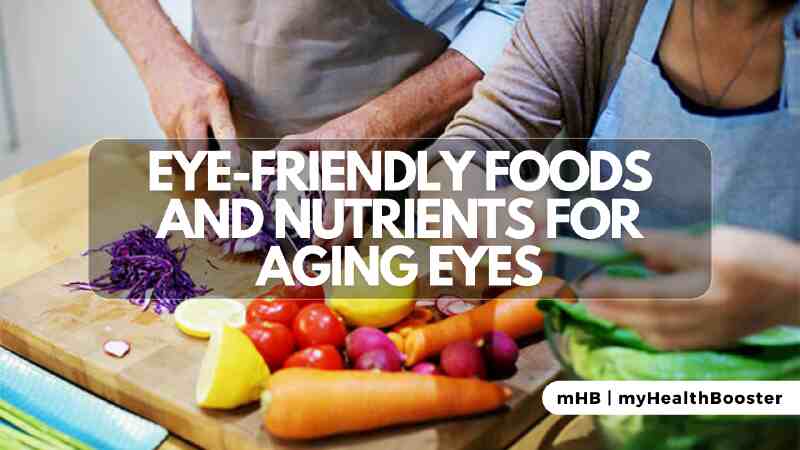As we age, maintaining optimal eye health becomes increasingly important. Nutrient-rich foods play a crucial role in supporting aging eyes and preventing age-related vision issues. In this comprehensive guide, we will explore the key nutrients and eye-friendly foods that can contribute to maintaining clear vision and overall eye health.
Understanding Aging Eyes
- Common Age-Related Vision Issues
- Macular degeneration
- Cataracts
- Glaucoma
- Dry eyes
- Role of Nutrition in Eye Health
- Proper nutrition can help prevent or slow down the progression of age-related eye conditions.
- Certain nutrients play a vital role in supporting the structure and function of the eyes.
Eye-Friendly Nutrients and Foods
- Vitamin A
- Foods Rich in Vitamin A: Carrots, sweet potatoes, spinach, kale.
- Role in Eye Health: Essential for maintaining the health of the retina and preventing night blindness.
- Lutein and Zeaxanthin
- Foods Rich in Lutein and Zeaxanthin: Leafy greens (spinach, kale, collard greens), eggs, corn.
- Role in Eye Health: Protect the eyes from harmful high-energy light waves like ultraviolet rays.
- Omega-3 Fatty Acids
- Foods Rich in Omega-3s: Fatty fish (salmon, mackerel, sardines), flaxseeds, walnuts.
- Role in Eye Health: Support retinal function and help prevent dry eyes.
- Vitamin C
- Foods Rich in Vitamin C: Citrus fruits, strawberries, bell peppers, broccoli.
- Role in Eye Health: Antioxidant properties protect the eyes from oxidative damage.
- Vitamin E
- Foods Rich in Vitamin E: Nuts, seeds, spinach, broccoli.
- Role in Eye Health: Acts as an antioxidant, protecting cells in the eyes from damage.
- Zinc
- Foods Rich in Zinc: Meat, dairy products, nuts, whole grains.
- Role in Eye Health: Supports the health of the retina and may help prevent age-related macular degeneration.
- Antioxidants
- Foods Rich in Antioxidants: Berries, dark chocolate, artichokes, beans.
- Role in Eye Health: Combat oxidative stress and inflammation in the eyes.
Frequently Asked Questions
- Can supplements replace a nutrient-rich diet for eye health?
- While supplements can be beneficial, a well-balanced diet with a variety of nutrient-rich foods is crucial for overall health, including eye health.
- How much sunlight is good for eye health?
- Limited exposure to sunlight is essential for the production of vitamin D, which may have protective effects on the eyes. However, always wear sunglasses to protect against harmful UV rays.
- Can lifestyle factors impact eye health?
- Yes, maintaining a healthy lifestyle, including regular exercise, avoiding smoking, and managing chronic conditions like diabetes, can positively influence eye health.
Conclusion
Prioritizing a diet rich in eye-friendly nutrients is a proactive step toward maintaining optimal vision as we age. By incorporating a variety of nutrient-dense foods into your meals, you can provide your eyes with the essential vitamins and minerals they need to stay healthy. Additionally, consult with an eye care professional for personalized advice and regular eye check-ups to monitor and address any concerns.
